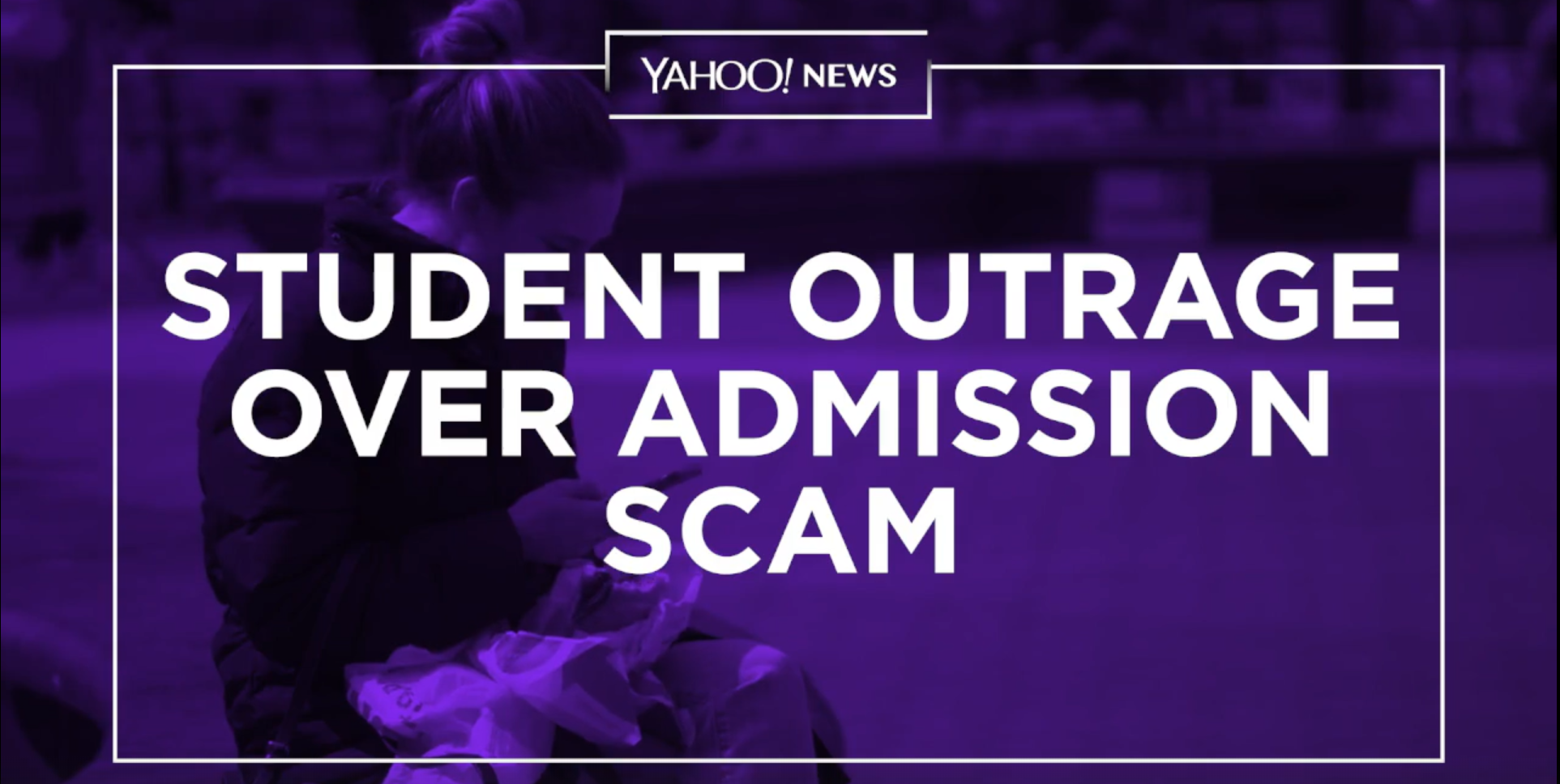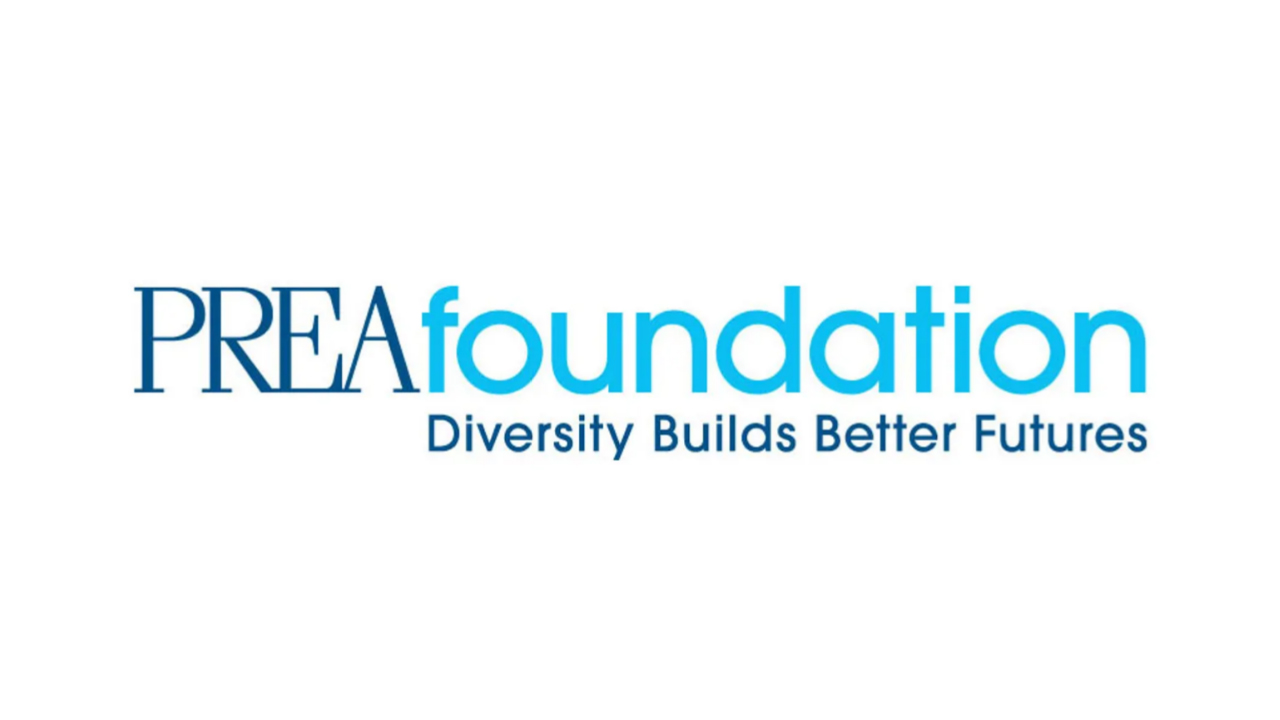Admissions scam adds insult to injury for minority applicants – Yahoo News March 2019

Yahoo News: March 14, 2019 – In what a federal prosecutor called “the largest college admissions scam ever prosecuted by the Department of Justice,” dozens of people were charged in a bribery scheme to cheat on SAT and ACT entrance exams and buy admission to elite schools for the children of wealthy parents. For parents who don’t have that kind of money, or who wouldn’t engage in such chicanery, it was an occasion for outrage, as well as schadenfreude. But for those trying to get underprivileged public-school graduates into top colleges, it called attention to the ongoing fight to make the whole admissions system fairer.
Through payments disguised as donations, parents involved in the cheating scandal paid between $250,000 and $400,000 per student to its “mastermind,” William Singer, who then laundered the money through his college counseling service to bribe college officials and coaches. Between 2011 and 2018, Leling said, the charged parents paid Singer about $25 million in total to guarantee their children’s admission to schools such as Yale, Georgetown, Stanford, USC, University of Texas, UCLA and Wake Forest.
Although the schools aren’t considered co-conspirators, two Stanford University students have filed a class-action lawsuit against them for “failing to take adequate steps to ensure that their admissions process was fair and free of fraud, bribery, cheating and dishonesty.”
Singer pleaded guilty to a scheme that included facilitating cheating on admissions tests, paying confederates to complete online high school classes in the students’ names and creating fake sports profiles for children to get them on athletic-recruitment lists.
“These are things that have consistently been going on — maybe not that blatant — but now it’s just up in the air and out in public,” said Emmanuel Moses, assistant director of college guidance and transition at the Opportunity Network, a nonprofit helping 2,500 students who are either “underrepresented, first generation, low income [or from] immigrant households” with college and career access.
“It is an extreme example of how access to privilege and money give you a heads-up in the game, by giving you access to hire a test prep, getting into specialized schools, paying college admission and independent education counselors to be able to sort of work the system.”
Despite years of preparation through his organization, Moses said, when students get to college they could still “think they’re not good enough” and struggle with microaggressions and cultural disadvantages. “Things like you don’t have a suit, you don’t know what an informational interview is, you can’t afford an unpaid internship.”
Moses, who criticizes the pressure to be accepted into elite schools, continued: “They automatically get to these institutions and think all they have to do is really work hard, but then they realize all the other things that these privileged households, privileged families, legacies are bringing with them and how they can make the most of their ‘privilege’ of being at that institution.”
Although the college admission scandal doesn’t address access or race, Moses said, it gives affirmative action advocates “more evidence to say, see I told you.”
Affirmative action for minorities is under attack in a lawsuit expected to be taken up by the Supreme Court this summer. A group called Students for Fair Admissions, supported by the Justice Department, has accused Harvard of explicitly factoring race into its admissions process, discriminating against Asian and Asian-American applicants through a process that “may be infected by racial bias.”
While decisions in some cases, notably Regents of the University of California v. Bakke in 1978, outlawed numerical racial quotas, other rulings permitted race-sensitive recruitment for schools and jobs in the interest of diversity. In 1996, California was the first state that went as far as to ban affirmative action in public university admissions.
“Affirmative action programs had been critically important, but we have seen attacks against affirmative action over the years, and those programs or policies have changed dramatically,” said education strategist Deborah Bial, a trustee of Brandeis University and the founder and president of the Posse Foundation, which works to get inner-city high school students and veterans into select colleges.
“We can’t rely solely on affirmative action programs,” Bial told Yahoo News. “There’s lots of different factors that will allow you to create the kind of class you want. And that’s a subjective process. But when we discriminate intentionally or unintentionally based on privilege or race or gender or whatever we run into challenges.”
Over 30 years, the Posse Foundation has helped 9,200 students win admission and full scholarships to Ivy League and other elite colleges including Yale, Dartmouth, Cornell and Vassar. It offers a nine-month college readiness program and writing and career coaching through to graduation.
“If you look at the whole person,” said Bial, “at the life they’ve lived, the academic life they’ve had, the efforts they’ve made, the activities they’ve engaged in, the ambitions they have, the things they’ve excelled in, the scores, the grades, the essays, all of those things need to play a role in the application process. We look at all of those things. We don’t let any one thing disproportionately overwhelm anything else or everything else.”
But affirmative action, born of the civil rights movement, was designed to proactively offset decades of systematic discrimination against minorities. Where race and gender and even religion were used to exclude people, affirmative action ensured marginalized groups would be counted in. Diversity recruiters were hired, and “placement goals” for minorities were put in place. But affirmative action didn’t remedy de facto racism inherent in American culture.
And it was open to the charge that aggressive recruitment of minorities amounted to “reverse discrimination” against whites.
Consequently, instead of looking exclusively at race, schools began to take into account socioeconomic status, expanded financial aid offerings and placed less emphasis on standardized test scores. And nonprofit and for-profit organizations that give students a leg up or competitive edge began to crop up and established pipelines for schools looking to recruit diverse students.
“A really smart form of affirmative action and a very moral form [is one] that builds the pipeline and equips students who ordinarily wouldn’t attend to have the qualifications to succeed at your school,” said Richard Sander, a professor of law at UCLA and affirmative action critic.
Sander is most known for his mismatch theory, claiming that affirmative action hurts beneficiaries by putting them in institutions at which they are less likely to compete and more likely to fail.
He said affirmative action is not the right way to counter inequities like those brought to light by the college cheating scandal.
“The argument is that wealthy people are getting unfair access through corrupt and other means, so we need to balance the scales,” Sander told Yahoo News. “One problem with that argument is that race-based affirmative action is very different from class-based affirmative action. Most of the people who are admitted to the elite schools affected in the scandal through race-based affirmative action are actually themselves from very affluent families.”
“The scandal,” he continued, “illustrates the need for more transparency in our college admission system.”
Sander filed a lawsuit suit against the University of California system last fall to disclose its admissions data, which he said it freely provided in the past but had stopped in the last decade.
“When you have a system that’s completely closed like that, it really invites corruption,” said Sander.
A better approach to affirmative action, said Sander, is focusing “more on class than race because class is really about what individual characteristics you have that disadvantage you. It makes more sense to give preference to an Asian student whose parents are working in a dry-cleaning store all day then to give a preference to the son of an African-American doctor. It’s based on that person’s life story, not the category that they’re in.”
But supporters of affirmative action disagree, and the issue is coming to a head in the lawsuit challenging Harvard’s admissions practices on behalf of Asian and Asian-American students who contend it disadvantages them. Harvard’s defense is that if it eliminated affirmative action, its proportion of African-American and Hispanic students, now around 14 percent each, would drop below 10 percent.
A pro-affirmative action group called Asian Americans Advancing Justice – Los Angeles (AAAJ) has weighed in on Harvard’s side.
Nicole Gon Ochi, a lawyer with AAAJ, explained the group’s position: “Other aspects of the admissions policy, whether that be legacy admissions or whether that be the overuse of SAT scores or how admissions officers treat donors — some of those things which are not criminal and are just part of the admissions process that many universities accept as a valid part of the process — these more entrenched policies are what we need to be focused on in addition to some of this outrageous conduct,” Ochi told Yahoo News.
“All of the attention that’s been given to race-conscious admissions in selective universities,” she said, needs to be redirected “toward fighting wealth, privileges and white admission advantage at universities.”
However, some supporters of fair and equitable admissions practices aren’t waiting for race-based affirmative action to be declared illegal.
“The safest place for us to be is preparing young people to meet the existing standard — not to relax the standards, not to change the standards,” said William Goodloe, president and CEO of SEO (Sponsors for Educational Opportunity), an organization that, at its founding in 1963, was set up to recruit executives at top law, finance and advertising firms who’d work with underprivileged students to help them gain admission to top colleges.
Some of the students they work with come from remote parts of the city, says Goodloe. “They have to get up before the sunrise, and they get home when it’s dark in the wintertime. Who doesn’t want to help a kid like that? To help them score competitive to their much more affluent counterparts on the SAT and then get into the college with the types of SAT scores, the types of grades that the rest of the university-admitted students pass.”
Goodloe’s organization, based in New York and San Francisco—where 14 of the 33 parents of the cheating scam are from—works with high-achieving students starting in their high school years. Half of their high school students are boys; 80 percent are black and Hispanic and come from low-income families. They commit to 720 hours of extracurricular academic training on Saturdays and after school on weekdays.
When asked why affirmative action isn’t a safe bet for his students, Goodloe, who called SEO an “anti-poverty program,” said, “There’s no telling which way the country is going to head. It’s been 60 plus years since Brown vs Board of Education. Public schools in many urban areas are more segregated than ever. The country is divided around affirmative action and the pros and cons. We don’t want to rely on things from a policy standpoint going one way or the other.”
“We work with young people to help them meet the existing standards, and now these standards are being changed,” added Goodloe. “The goal post is being moved based on how much money you can pay, to have preferred access in a variety of ways. The whole idea of there being a level playing field, there being consistent standards that are applied to everyone is false.”
To level the playing field beyond affirmative action, schools have instituted “test-blind” admissions. Hampshire College in Massachusetts hasn’t looked at scores since it opened in 1970, declaring that “The tests more accurately reflect family economic status than potential for college success.” The University of Chicago also went test-optional “to enhance the accessibility of its undergraduate College for first-generation and low-income students.”
As for students whose families have the financial means to provide a competitive edge, there are services like Cardinal Education, an educational consultancy in the San Francisco Bay Area that works with majority white and Asian families who pay for long-term coaching, tutoring, test prep and consulting for college as well as private school.
“We start with families as young as elementary school,” said Allen Koh, CEO of Cardinal Education. “They want to start really young, so their kids aren’t stressed out trying to cram everything into the last couple of years. And that’s why you get cheating. It’s a lot easier to bribe your way to victory.”
In the spring of 2013, Koh — a Stanford grad — met Singer, to whom he had lost a client, Koh told Yahoo News.
A family hired both Singer and Koh for college applications.
“He never mentioned fake athletic profiles,” said Koh. “He presented [his strategy] more as a development play but at a really, really low cost. People are developing authentic relationships with the universities 10 to 20 years out. And the fact that someone is going to go in there three months before the application, that timeline didn’t strike me as a believable.
“There are families spending upwards of $30,000 to $50,000 on us just to get their kid into a private middle school. So my biggest impression on this whole scandal, other than the disgust, is ‘I’m surprised this guy charges so little.’”
Koh said he and his team at Cardinal, unlike Singer when they met, never guarantee anything to the families “because anyone in this business who guarantees is either a liar or incompetent.”
“And now, what I’ve learned, could also be a criminal,” said Koh, who added, “Just because you pay the money, it doesn’t mean you win.”
Recent News

















